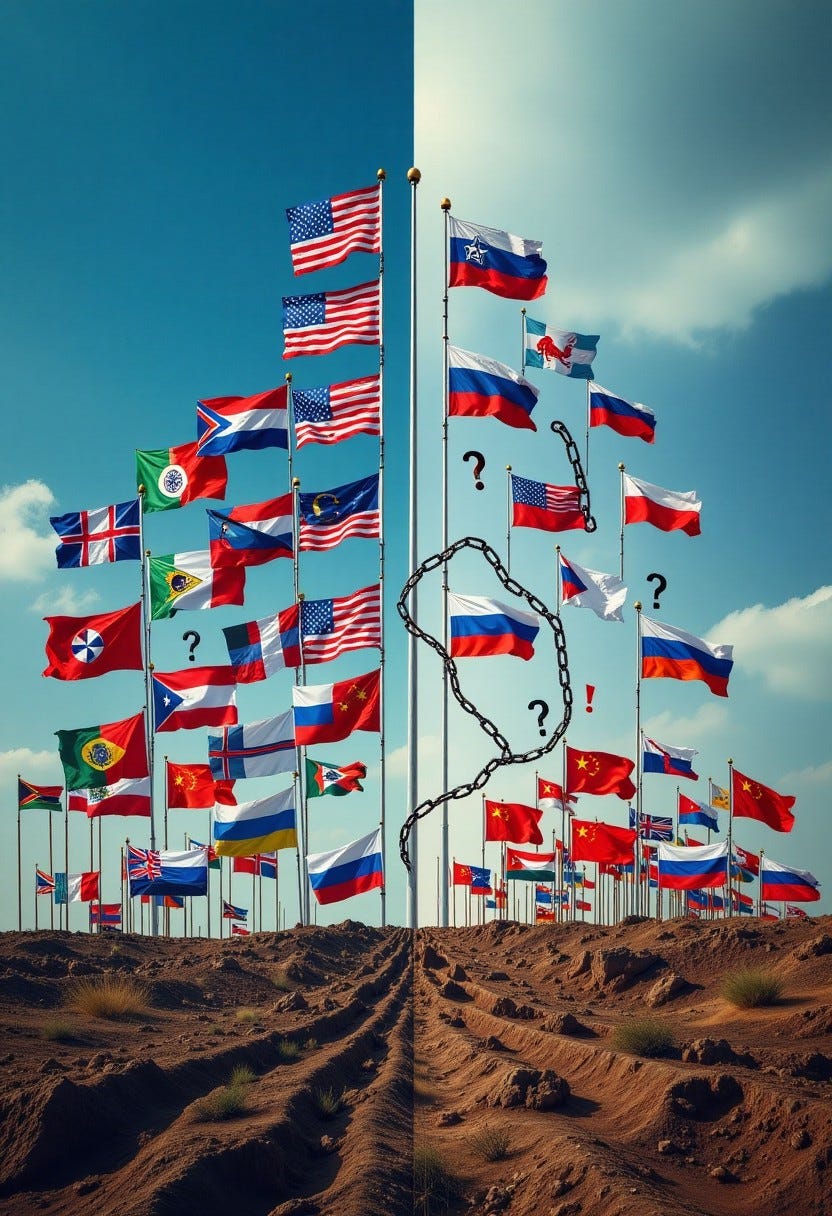Is Trump Unwittingly Ceding the Cold War to Russia?
Recent shifts in U.S. foreign policy under President Donald Trump have raised concerns about America's strategic positioning and its implications for global power balances.
In the realm of international politics, the Cold War's legacy continues to shape the dynamics between the United States and Russia.
From Cold War Consensus to Strategic Ambiguity
Historically, U.S. foreign policy was anchored in a bipartisan commitment to alliances like NATO, a firm stance against adversaries such as the Soviet Union, and active participation in multilateral institutions. This approach aimed to uphold a liberal international order and counterbalance Soviet influence.
However, the advent of the Trump administration marked a departure from these principles. Embracing an "America First" doctrine, the administration questioned longstanding alliances and international agreements, introducing a level of unpredictability that unsettled both allies and adversaries.
Recalibrating Relations with Russia
One of the most notable shifts has been the Trump administration's approach to Russia. Efforts to improve U.S.-Russia relations have included high-level meetings and discussions aimed at resolving conflicts such as the war in Ukraine. While dialogue is essential, critics argue that certain concessions, like proposing territorial compromises in Ukraine, may embolden Russian ambitions and undermine U.S. credibility.
Furthermore, the administration's decision to withdraw from agreements like the Paris Climate Accord and the World Health Organization, coupled with reduced support for traditional allies, has created a vacuum that Russia is poised to exploit.
Implications for Global Power Dynamics
The strategic ambiguity introduced by these policy shifts has broader implications. By distancing itself from traditional allies and multilateral commitments, the U.S. risks weakening the very structures that have underpinned its global leadership. This realignment could inadvertently provide Russia with opportunities to expand its influence, particularly in regions where U.S. engagement has waned.
Moreover, the perception of U.S. unpredictability may encourage other nations to seek alternative alliances, potentially leading to a more fragmented and multipolar world order.
Conclusion: Navigating the New Geopolitical Landscape
While the intention behind recalibrating foreign policy may be to prioritize national interests, the execution requires careful consideration of long-term strategic consequences. Maintaining robust alliances and a clear commitment to international norms are essential to preserving the U.S.'s role as a global leader. As the geopolitical landscape evolves, the U.S. must balance domestic priorities with the responsibilities that come with its position on the world stage.


